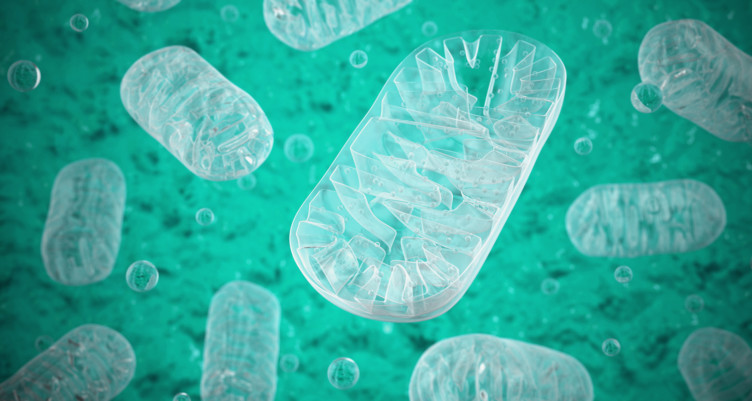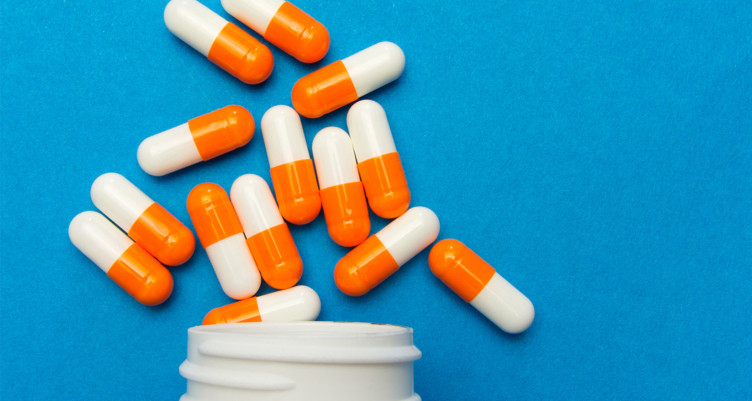How to Own Your Gut Bacteria and Fix Leaky Gut Syndrome

- Your digestive system is a barrier that keeps disease-causing pathogens out of your bloodstream.
- An unhealthy gut biome can lead to leaky gut — a condition in which holes form in the walls of your GI tract, allowing toxins and proteins to circulate in your body and contribute to disease, inflammation, and allergies.
- Symptoms of leaky gut include fatigue, digestive issues, skin problems, joint pain, and even more serious conditions like type 1 diabetes and inflammatory bowel syndrome (IBS).
- Diet is by far the most important factor in maintaining a healthy gut biome, which supports your immune system and digestion.
Your gut bacteria affect your entire body, including your sleep quality, mood, and appetite. If all is going well, these organisms live in perfect harmony with you, their host. However, your gut microbiome is influenced by everything from your diet to your stress levels. If things go south, you can end up with a range of digestive and metabolic conditions that negatively affect your entire body — including leaky gut syndrome. Here’s what you should know about leaky gut, including tips to strengthen your gut lining.
What is leaky gut syndrome?

Your digestive system, also known as your gastrointestinal (GI) tract, acts as a barrier that protects you from the outside world. If things are working the way you want, your GI tract allows nutrients in and keeps disease-causing pathogens out.
Gut microbes play a big role in maintaining the integrity of the gut lining. Healthy gut bacteria produce short-chain fatty acids and proteins that help keep your intestinal wall strong.
An unhealthy gut microbiome can give you leaky gut, which is just what it sounds like — a condition where holes develop in the walls of your gut. Also known as increased intestinal permeability, leaky gut syndrome allows intestinal contents to “leak” into the bloodstream. This includes proteins and bacterial neurotoxins that can trigger allergies, autoimmune disease, and inflammation.[1]
The exact cause of leaky gut is a mystery. Certain people are more genetically predisposed to leaky gut, and studies show that inflammation can increase intestinal permeability.[2]
What causes inflammation? Stress, heavy alcohol use, a diet high in sugar and saturated fats, and gluten, to name a few factors.[3]
Leaky gut symptoms

Here are a few common symptoms of leaky gut syndrome:
- Food sensitivities
- Persistent acne or rosacea
- Fatigue
- Autoimmune disorders (hypothyroidism, Hashimoto’s thyroiditis)
- Weight gain
- Digestive issues and bloating
- Mood swings
- Depression
- Headaches
- Joint pain
Leaky gut has also been linked to type 1 diabetes, inflammatory bowel disease (IBS), celiac disease, multiple sclerosis, asthma, and autism, among other conditions.[4] [5]
If you suspect you have leaky gut syndrome, try the following protocol.
How to fix leaky gut syndrome
Diet is by far the most important factor in making your gut work. By keeping your gut microbiota in healthy balance, you can boost your immune system, support your digestion, remove environmental toxins from your body, and prevent leaky gut.
1. Choose low-toxin, anti-inflammatory, high-nutrient foods

Eating low-inflammation foods will help good gut bacteria thrive and keep the bad guys from taking over. Here’s what that looks like:
- Cut out sugar and alcohol: Sugar feeds bad bacteria and promotes yeast and candida overgrowth, all of which damage your gut. Drinking alcohol in excess diminishes the diversity of bacteria in your gut.
- Eat a variety of whole, unprocessed foods: Eating a variety of foods introduces many different good bacteria into your biome, making your gut more likely to thrive.[6] Balanced gut diversity also leads to strong gut integrity and a properly functioning immune system.[7] Shop your local farmers market — gut bacteria are related to soil bacteria, and local food supports happy guts.
- Avoid anti-nutrients: Anti-nutrients are food toxins that cause inflammation. In some cases, they lead to severe gut and autoimmune reactions.[8] Avoid mold toxins (mycotoxins), lectins, phytates, and oxalates. Foods with anti-nutrients include soy, grains, beans, and raw cruciferous vegetables like kale and spinach.
- Eat foods that feed good bacteria: Sweet potato, carrots, asparagus, and squash contain prebiotic fiber that supports good bacteria growth. Foods that are rich in probiotics, like pickles and kefir, may help introduce good gut bacteria, but pick your probiotic sources carefully.
- Skip conventional, pasteurized dairy: Pasteurized dairy is harmful to your gut because it creates inflammatory proteins, kills beneficial bacteria, and eradicates vital enzymes, making lactose difficult to digest. Some people are more sensitive to dairy than others, but it’s best to avoid it altogether when you’re focused on healing your gut. (Here’s why grass-fed, organic butter and ghee are different.)
2. Support the good guys with supplements

Give the good bacteria in your gut plenty of food to keep them strong.
- Prebiotics: Prebiotics feed intestinal bacteria that produce short-chain fatty acids (SCFA). These nutrients fuel the intestinal mucosal cells that keep the lining of the gut intact and healthy. Give your intestinal bacteria more of what it needs with fibers like acacia gum and partially hydrolyzed guar gum (PHGG), both gentle prebiotics that have been found to support beneficial bacteria in the gut.
- Digestive enzymes: Your small intestine, pancreas, stomach, and salivary glands produce enzymes that help break down our food so we can absorb its nutrients. The enzymes often stop working in the face of leaky gut. Removing enzyme inhibitors like grains and legumes and using a high-quality digestive supplement can improve overall digestion and vitamin absorption.
- Betaine HCL: Betaine HCL can improve fat breakdown and protein digestion for people who have low stomach acid due to autoimmune disease or age.[9]
- Activated charcoal: Activated charcoal is an ancient and scientifically-backed remedy. It absorbs endotoxins that cause gastrointestinal disease and removes toxins from processed, low-quality foods.[10]
- L-glutamine: This anti-inflammatory amino acid is imperative to fix a leaky gut by promoting growth and repair of your GI tract. It’s like a bodyguard for your gut, covering cell walls and getting rid of unwanted pests.
3. Use antibiotics with caution

Regardless of how hard you’re working on your diet, you’ll undo those efforts if you rely heavily on certain medications. Western medicine is fond of prescribing gut-damaging antibiotics for everything from acne to the common cold. These drugs not only kill the pathogenic bacteria, but also a host of other important microbes with them. If you’re on a temporary and necessary course of antibiotics, follow these suggestions to restore gut flora.
4. Start young

Your gut microbiome starts establishing at birth. Babies born via caesarean section have a diminished diversity and a different makeup of microbiota than babies delivered vaginally.[11] [12] After that, an infant establishes its microbiome through diet — and gut biome differences depend on whether the child is breastfed or formula-fed.[13] [14]
Optimizing your kids’ diets can set them up for success. You might be surprised by how much better they behave when they’re sharp and feel good, too. For an extra dose of good bacteria, let them run around outside — barefoot.[15] [16]
5. Hack stress

Besides diet, stress management is one of the most profound ways to heal your gut biome. Studies show that stress affects the gut-brain axis, another name for the pathway that connects your gut and your brain. Stress can lead to decreased nutritional absorption, enzyme production, oxygenation, and blood flow to the GI tract.[17] [18]
You have more than 100 trillion cells in your gut, and they affect just about everything your body does, from your digestion to your immune system defenses. That’s why it’s important that you make a conscious effort to keep your gut in good health. When you take care of your gut, you’ll feel like a better, more awesome version of yourself—and who doesn’t want that?
Sign up for early access to sales, product launches, the latest Bulletproof news and more!



